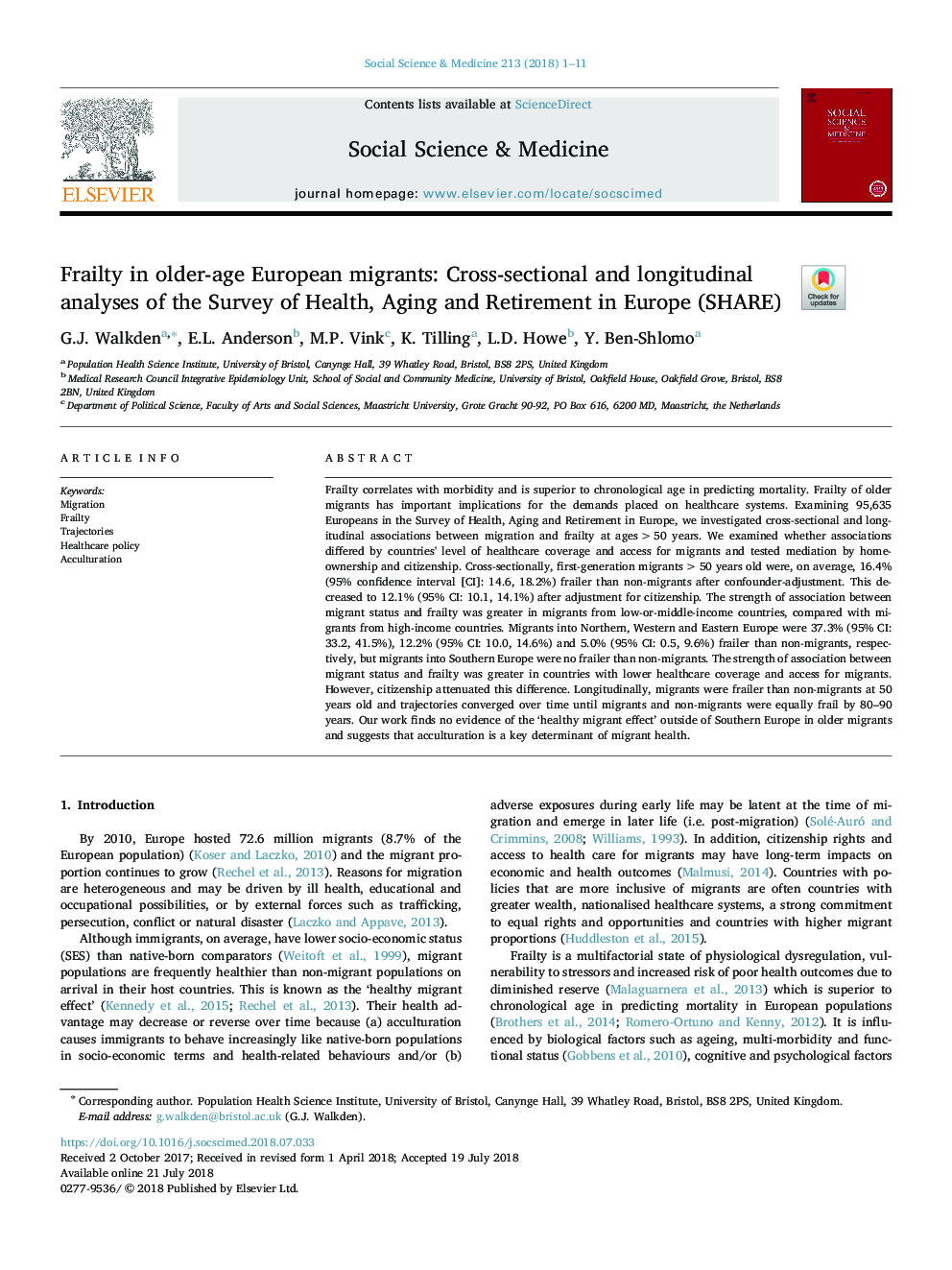| Article ID | Journal | Published Year | Pages | File Type |
|---|---|---|---|---|
| 7327135 | Social Science & Medicine | 2018 | 11 Pages |
Abstract
Frailty correlates with morbidity and is superior to chronological age in predicting mortality. Frailty of older migrants has important implications for the demands placed on healthcare systems. Examining 95,635 Europeans in the Survey of Health, Aging and Retirement in Europe, we investigated cross-sectional and longitudinal associations between migration and frailty at ages >50 years. We examined whether associations differed by countries' level of healthcare coverage and access for migrants and tested mediation by home-ownership and citizenship. Cross-sectionally, first-generation migrants >50 years old were, on average, 16.4% (95% confidence interval [CI]: 14.6, 18.2%) frailer than non-migrants after confounder-adjustment. This decreased to 12.1% (95% CI: 10.1, 14.1%) after adjustment for citizenship. The strength of association between migrant status and frailty was greater in migrants from low-or-middle-income countries, compared with migrants from high-income countries. Migrants into Northern, Western and Eastern Europe were 37.3% (95% CI: 33.2, 41.5%), 12.2% (95% CI: 10.0, 14.6%) and 5.0% (95% CI: 0.5, 9.6%) frailer than non-migrants, respectively, but migrants into Southern Europe were no frailer than non-migrants. The strength of association between migrant status and frailty was greater in countries with lower healthcare coverage and access for migrants. However, citizenship attenuated this difference. Longitudinally, migrants were frailer than non-migrants at 50 years old and trajectories converged over time until migrants and non-migrants were equally frail by 80-90 years. Our work finds no evidence of the 'healthy migrant effect' outside of Southern Europe in older migrants and suggests that acculturation is a key determinant of migrant health.
Related Topics
Health Sciences
Medicine and Dentistry
Public Health and Health Policy
Authors
G.J. Walkden, E.L. Anderson, M.P. Vink, K. Tilling, L.D. Howe, Y. Ben-Shlomo,
